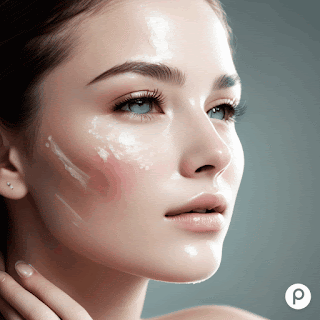Acne is a common skin condition that affects people of all ages and skin types. It is characterized by the appearance of pimples, blackheads, and whiteheads on the skin, and can be caused by a variety of factors such as hormonal imbalances, genetics, and certain medications. While acne can be a frustrating and embarrassing condition, it is important to treat it effectively to prevent long-term skin damage and scarring. One of the most effective ways to treat acne is by incorporating the right skincare products into your routine. By selecting products that are formulated with acne-fighting ingredients and are suitable for your skin type and concerns, you can help to reduce inflammation, kill acne-causing bacteria, and improve the overall health of your skin. In this article, we will explore the importance of selecting the right skincare products for acne treatment and provide tips for finding the best products for your skin.
Types of Skincare Products for Acne Treatment
Cleansers: Cleansers are the first step in any skincare routine and are used to remove dirt, oil, and makeup from the skin. For acne-prone skin, it's important to select a cleanser that is gentle and non-irritating, as harsh cleansers can strip the skin of its natural oils and lead to further irritation. Look for cleansers that are formulated with acne-fighting ingredients, such as salicylic acid or benzoyl peroxide.
Toners: Toners are used to balance the pH of the skin and help to remove any remaining dirt or impurities. For acne-prone skin, look for toners that are formulated with astringent ingredients, such as witch hazel or tea tree oil, to help reduce excess oil production.
Exfoliants: Exfoliants are used to gently slough away dead skin cells and promote healthy skin renewal. For acne-prone skin, it's important to select an exfoliant that is gentle and not too abrasive, as overly aggressive exfoliation can irritate the skin and lead to further breakouts. Look for exfoliants that are formulated with acne-fighting ingredients, such as salicylic acid or glycolic acid.
Spot Treatments: Spot treatments are used to target specific areas of the skin with acne-fighting ingredients. Look for spot treatments that are formulated with acne-fighting ingredients, such as salicylic acid or benzoyl peroxide, to help reduce inflammation and kill acne-causing bacteria.
Moisturizers: Moisturizers are an important part of any skincare routine, even for acne-prone skin. It's important to select a moisturizer that is non-comedogenic, which means it won't clog pores and contribute to breakouts. Look for moisturizers that are formulated with lightweight, non-greasy ingredients to help hydrate the skin without causing excess oil production.
How to Select the Right Skincare Products for Acne Treatment
Skin Type: It's important to choose products that are suitable for your skin type, whether it's oily, dry, combination, or sensitive. Products that are too harsh or drying can further irritate acne-prone skin and lead to further breakouts.
Acne Severity: Consider the severity of your acne when selecting skincare products. If you have mild acne, you may be able to use over-the-counter products, while more severe acne may require prescription medication.
Active Ingredients: Look for products that are formulated with acne-fighting ingredients, such as salicylic acid, benzoyl peroxide, or glycolic acid. These ingredients help to reduce inflammation and kill acne-causing bacteria.
Non-comedogenic: Choose products that are labeled as non-comedogenic, which means they won't clog pores and contribute to breakouts.
Patch Test: Always perform a patch test before using a new skincare product to ensure it doesn't cause irritation or allergic reactions.
How to Incorporate Skincare Products into an Acne Treatment Routine
Here's a step-by-step guide for incorporating skincare products into an acne treatment routine:
Cleanse: Begin your routine with a gentle, non-irritating cleanser that is formulated with acne-fighting ingredients. Use lukewarm water and gently massage the cleanser onto your skin in a circular motion. Rinse thoroughly and pat your skin dry with a clean towel.
Tone: Next, apply a toner to help balance the pH of your skin and remove any remaining impurities. Simply apply the toner to a cotton pad and swipe it over your skin, avoiding the eye area.
Exfoliate: Depending on your skin type and the severity of your acne, you may want to exfoliate a few times a week. Choose an exfoliant that is gentle and formulated with acne-fighting ingredients. Gently massage the exfoliant onto your skin in a circular motion, avoiding the eye area. Rinse thoroughly and pat your skin dry.
Treat: Apply a spot treatment to any areas of the skin with active acne. Follow the instructions on the product for best results.
Moisturize: Even acne-prone skin needs moisture, so be sure to apply a lightweight, non-greasy moisturizer to your skin after treating.
Sun Protection: Don't forget to apply sunscreen during the day to protect your skin from damaging UV rays. Choose a non-comedogenic sunscreen with an SPF of at least 30.
It's important to be consistent with your skincare routine and use your products as directed for best results. Avoid skipping steps and be patient, as it may take time for your skin to respond to treatment.
In conclusion, the right skincare products are an integral part of any acne treatment routine. By selecting products that are suitable for your skin type and concerns, you can help to reduce inflammation, kill acne-causing bacteria, and improve the overall health of your skin. It's important to be consistent with your skincare routine and give products time to work, but don't be afraid to experiment and try different products to find what works best for your skin. With a little trial and error, you can find the perfect skincare routine to help clear up your acne and achieve healthier, radiant skin.




No comments:
Post a Comment